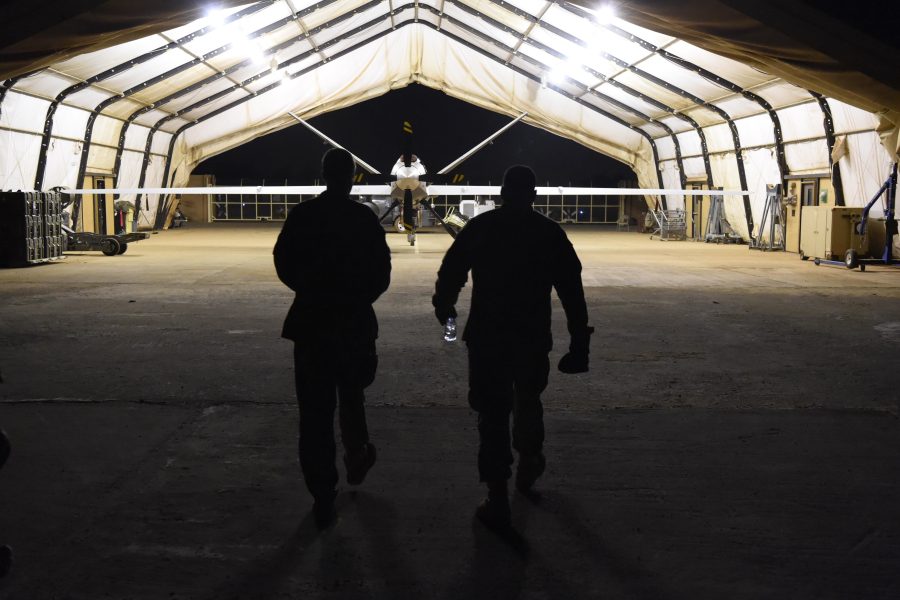Niger’s ruling military junta says U.S. troops must leave the country, which would deprive the U.S. military of key air bases used for counterterrorism operations including one that the U.S. military spent over $100 million dollars to build just a few years ago. But the Pentagon isn’t giving up hope of losing their presence in the restive Sahel region of Africa just yet, U.S. officials said March 18.
“We want to see our partnership continue if there is a pathway forward,” deputy Pentagon press secretary Sabrina Singh told reporters. “We are working through diplomatic channels to seek clarification. These are ongoing discussions.”
The head of U.S. Africa Command Marine Corps Gen. Michael E. Langley, assistant secretary of defense for international security affairs Celeste Wallander, and assistant secretary of state for African affairs Molly Phee traveled to Niger last week to meet with members of the military junta, known by its French acronym CNSP, American officials said.
Those conversations were “lengthy and direct,” Singh said.
However, on March 16, a spokesman for the junta said the U.S. troops were no longer permitted in the country and denounced America.
The Wall Street Journal reported that U.S. officials raised concerns about the junta considering allowing Tehran to gain access to Niger’s uranium reserves for its nuclear program.
“We had direct conversations about some of our concerns, about … pursuing relationships with Russia and Iran,” Singh said. “But I wouldn’t say it’s an ultimatum.”
The U.S. presence in Niger has been largely consolidated to one base, Air Base 201, which is far away from the capital of Niamey, where the other U.S. base, Air Base 101, is located. A letter President Joe Biden sent to Congress in December 2023 said roughly 650 American personnel remained in Niger, though Singh said the current number of personnel is approximately 1,000.
“If Western operations are significantly impacted by this, it’s going to be bad for the Nigerien people,” retired Army Gen. Stephen J. Townsend, who led AFRICOM from 2019-2022, told Air & Space Forces Magazine in July 2023 shortly after the coup. “It’s going to be bad for the region.”
The U.S. has flown drones, such as Air Force MQ-9s, to gather intelligence on militant groups in the region, including al-Qaeda, Islamic State affiliates, and Jama’at Nusrat al-Islam wal-Muslimin (JNIM), a terrorist group active in Niger and other parts of West Africa. In 2017, four American service members were killed while hunting for an Islamic State leader.
The U.S. held off calling the July 2023 overthrow of the democratically-elected president of Niger, Mohammad Bazoum, a coup until October, a move that legally required the U.S. to cut off military assistance such as training and support of Nigerien forces.
U.S. officials say drone operations have been restricted to force protection reconnaissance missions and troops have been staying on base.
“There have been no counterterrorism [missions] either unilaterally or with the Nigerien government since the July coup,” Singh said.
For now, the U.S. appears to be holding out hope it can salvage some form of presence in Niger. Neighboring Mali and Burkina Faso had coups in 2021 and 2022, respectively, and are now ruled by Russian-aligned leaders. It remains unclear where the U.S. could operate to conduct counterterrorism missions in the unstable Sahel region if its forces leave Niger for good.
“I’m not going to preview what things could look like in the region,” Singh said. “I can tell you that Gen. Langley is certainly engaged with other partners there.”
